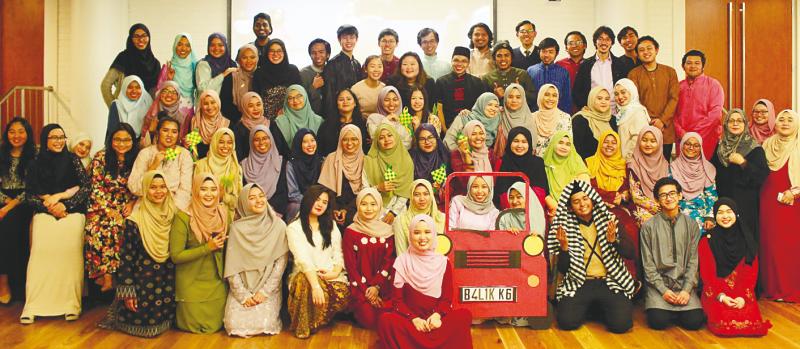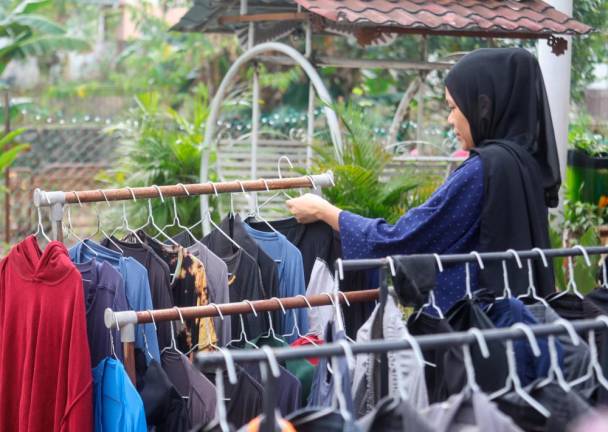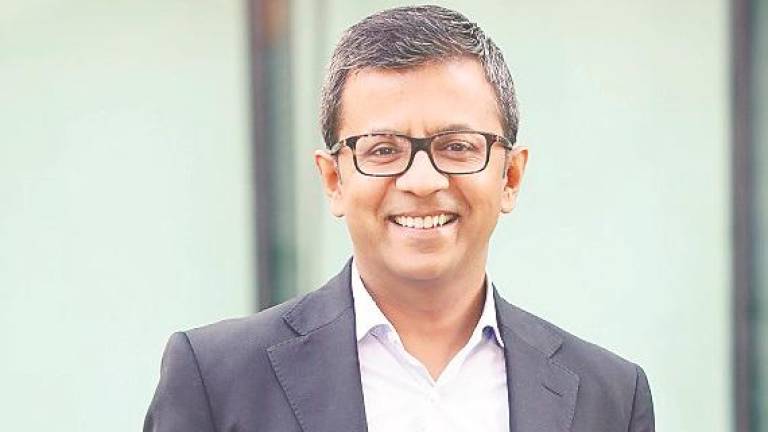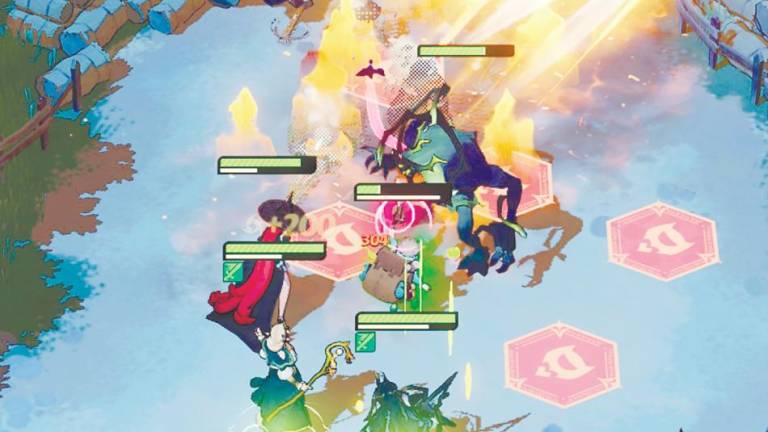UNLIKE the many Muslims around the world who will soon be journeying home to reunite with their families and friends in celebration of the festival of Eid, Edania Ridzmann, Nadiah Husna Mohd Faudzi, Nurain Nasuha Tajul Arafat and Aisya Sofia Ahmad Zamri will not. This year, they will observe the occasion in Dunedin, New Zealand and celebrate Hari Raya Aidilfitri with uni mates and other fellow Malaysians. They tell us why ...
EDANIA
Edania from Seremban is into her fourth year at the University of Otago, pursuing the Bachelor of Laws (LLB) degree.
“I haven’t celebrated Raya with my family since I started uni, so, this year isn’t any different. For Raya this year, I will probably be in the midst of studying for the first round of exams. I will probably make an effort to cook a nice dinner and seek out some friends to feed,” says the 22-year-old, not quite in jest.
As the previous Raya festivities did not fall during exam time, she says it won’t be as nice this year as her family and friends back home will all be in holiday mood while she will somewhat (have to have) her nose in her law books.
“Raya in NZ definitely lacks the ceremonial feel if compared to Malaysia. There aren’t any Raya songs playing when I wake up, no Rendang and Ketupat for breakfast, and no Kebaya’s to celebrate in. Raya here is more of an intimate affair. Usually, I would just be with a few Malaysian friends and we would all reminisce about the food we miss and the duit Raya we will not receive. But what I miss most will be my family.”
While Edania has over the years, gotten used to not having the usual Raya spread, the one thing she never forgets to do is contacting her family and speaking with them over the phone on Eid.
On the possibility of her, this year, cooking for some friends, she says: “It’s quite nightmarish, thinking about me cooking any Malay dishes as most are complex and I can never get a proper recipe out of my mum; her “agak-agak” (estimation) measurements aren’t quite as reliable as tablespoons or cups. I’ll most likely settle for pre-cooked packets of rendang paste, which is good enough for me and my friends ... maybe a chicken curry this year, if I’m bothered to put more effort that is.”
NADIAH
Kedah-born Nadiah grew up in Selangor. She is pursuing a Bachelor of Arts degree, majoring in Communication Studies.
“Last year, the first day of Raya fell on the same date as my exam. I ended up going for the exam in my Baju Kurung,” she reveals and is thankful that this year will be different.
“The date of my exams are later this year, so I plan to go for the Solat Hari Raya prayers at the Masjid Al-Huda mosque in Dunedin.
“Every Hari Raya, my friends and I have a tradition - we take a group photo in front of our beautiful university building which bears a clock tower. This year will be the same, but I also plan to cook a feast this year, and have an open house and invite all my friends.”
On celebrating away from home, Nadiah says it’s not the first time. “I’m used to celebrating with my friends and the Muslim community here, so during Raya, my friends are my family. We also have open houses at our flats, where we would visit each other, like a typical Raya celebration in Malaysia, well almost ... The most obvious difference is that we don’t have gazetted holidays for Hari Raya here, so the occasion is just a merrier version of a normal study day. Oh ... and we don’t get duit Raya here.”
What Nadiah misses most apart from family is the variety of delicacies like ketupat, rendang, lemang, soto, etc. She says that in New Zealand, although local ingredients are available, not all are easily accessible, especially that used in dishes served during Hari Raya. Moreover, she adds, “We also have restrictions in a way, according to what our student budget permits anddepending on the cooking skills we have.” But Nadiah is prepared. “My flatmates and I have already stocked up on some ‘rare’ ingredients from Malaysia such as instant rice cubes (ketupat) and lemang. We are planning to cook spicy Rendang Negeri Sembilan, kuah kacang, Soto and different types of kuih Raya.”
NURAIN
Nurain who was born in Cheras, Kuala Lumpur is a second year Bachelor of Laws (LLB) student.
She says that this Raya she would like to experience celebrating with her friends. “Flight ticket prices on a student budget only allows me to go home once a year,” she laments.
For Nurain, Hari Raya celebrations here begin with a visit to the local mosque for prayers, followed by a sermon, then the customary group photo in front of the university clock tower. With the usual seen to, Nurain informs that some (of her friends) will then disperse to the library to study as Raya usually falls during exam time.
“For the rest of us who are more fortunate not to have exams during Hari Raya, we would usually go back to our ‘homes’ and have a Hari Raya breakfast, which comprises homemade Rendang, nasi impit and ketupat. After that, it’s video calls to our beloved family in Malaysia to wish them. Sometimes, we have a Raya Potluck or exchange foods we have with our other friends,” she shares.
Her views on celebrating the festive occasion in NZ are pretty much the same as the rest, so she sheds light on what fasting is like there.
“Fasting in New Zealand poses less of a challenge as the duration of fast is only 11 hours compared to Malaysia where you fast for 13 hours. Moreover, the weather here is cold and chilly, so you don’t get as easily thirsty as when fasting in hot, humid Malaysia.”
What she finds tough is that most people in NZ are non-Muslim, hence, they sometimes unintentionally offer her food or drinks. “I see this as an opportunity for me to explain my fasting.” Another challenging situation says this 21-year-old is, “There are no Ramadan bazaars like the ones in Malaysia where you are spoiled for choice with a wide variety of delicious foods.”
AISYA
Aisya, born in Selangor, has been studying and living in NZ since age 10. She is pursuing a Bachelor degree in biomedical science.
”My family and I moved to New Zealand in 2008, almost 11 years now. We usually return to visit once every two years or so. As much as I really would love to go back this Raya, I’m unable to, because it would be during the middle of the semester at Raya time.” The last she and her family celebrated Raya in Malaysia was back in 2016.
Aisya has two older siblings, a brother and sister, who are also living in NZ but in Christchurch. Her plan this year is to visit them, together with her younger sister who lives with her in Dunedin. “My parents will not be joining us as they are currently residing in Oman. So it’ll just be us siblings who will be celebrating Raya together,” says this independent lady.
Like the rest, Aisya says there is no doubt that celebrating the occasion in NZ is very different from Malaysia. “There is great cultural diversity within the Muslim community, so the ambience is very different, but still unique in its own way. You get to see different types of Raya food and variations of ‘Baju Raya’. However, because the Muslim community here is quite small, we tend to be closer and we take everyone as family.”
Every year on Eid, Aisya says she gets a little homesick. “I miss the Raya vibes in Malaysia; the shopping for Raya clothes; playing with fireworks the night before Eid; spending time with my cousins, uncles, aunties, grandparents; and, of course the amazing authentic Malaysian Raya food cooked by Nenek! I would of course also miss receiving ‘Duit Raya’!”
But every year, Aisya says she and her siblings try to re-create that festive feel in NZ. They’d cook together the night before Eid, and a few days prior, they’d also bake some kuih Raya like honey cornflakes, semolina cake, cookies, Mama Carrie, etc. If she and her family were back in Malaysia, she says they would go back to their hometown in Johor and celebrate with the larger family.
Like Nurain, Aisya agrees that fasting in NZ poses less of a challenge. “Fasting is during the winter season here where the days are shorter.. And because it’s cold, you don’t feel as thirsty or hungry throughout the day. However, you don’t get the awesome Bazaar Ramadan here in NZ, so there isn’t the variety of scrumptious Malaysian food and snacks when you break fast. I really miss that.”
IN THE SPIRIT OF EID
We couldn’t help but ask the four girls about the recent shooting incident to which they openly shared their thoughts.
“During the first few days and weeks following the shootings, I think some students especially those who don hijabs, were cautious while on the street, but the student association assured them of the school’s support and even had a hijab day where many women, not only Muslim women, wore the hijab to show their support.
“The community in Dunedin also had a march in solidarity. Of course, I’m sure things are not the same for those who lost loved ones, and I’m sure this Eid won’t be as happy a celebration as in previous years,” Edania shares.
According to Nadiah’s observations, there is no marked difference in the number of people who go to the mosque for terawih prayers since. “I think there are actually more student volunteers coming to help prepare the communal meal at the mosque this year. And since the incident, armed police officers have been stationed on duty at every prayer time. I think this gives the people some reassurance...
“I truly appreciate the NZ community for their support and the aroha (love, in the Maori language) they have shown in solidarity with the Muslim community.”
While Nurain feels the same, Aisya reveals how relieved she was to find out that her elder brother who had initially planned to go for prayers at the Al-Noor mosque in Christchurch changed his plans. She also feels that the incident has actually brought the Muslim community in NZ closer.
“We are stronger and everyone is now much more caring towards one another. Even the Kiwi community have been showering us with endless support while the police have been on sentry patrol from the breaking of fast until the end of terawih prayers. We’ve also had many non-Muslims coming to the mosque to break fast with us,” Aisya states.
Still, she doesn’t deny that this Ramadan and Eid will not be the same for those who are slowly healing from the emotional and mental anguish.
“But the tragedy also brought about a big change to the NZ nation. Many people now know about Islam; more are trying to learn and understand the religion; many are aware of the existing mosques throughout NZ; and more people, including non-Muslims, are visiting the mosques.
“Additionally, people are also seeing the true beauty of Islam and how much of a peaceful religion it is. Rather than feeling like a minority in this country, I feel more equal now; more at home. So, Insha Allah, this year’s Raya will definitely be a one to remember,” says young Aisya in the true spirit of Islam.











